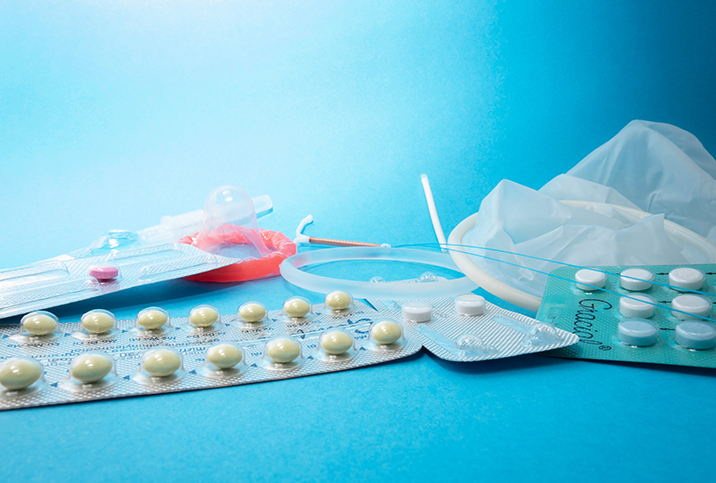Protect Yourself From STDs

It's easy to feel uncomfortable at the thought of a sexually transmitted disease (STD), but knowledge is the key to protecting yourself and your partners from infections that can lead to serious illness.
The difference between sexually transmitted infections (STIs) and STDs is that infections have not yet evolved into diseases and can include bacterial infections, viruses and parasites. Sexually transmitted diseases are a more serious problem that can develop as a result of infection. STIs/STDs are typically spread through the exchange of bodily fluids during sex.
The United States has the highest incidence of STDs in the industrialized world, so it's imperative to protect yourself and your partners.
STDs, pregnancy and safe sex
While the easiest way to avoid STDs is to not have sex, this isn't an option for many people, acknowledged Danae Maragouthakis, M.P.H., M.B.B.S., the medical director at Yoxly, a provider of at-home STI test kits based in Oxford, England.
However, she does have advice for keeping yourself as safe as possible.
"Correctly and consistently use latex barrier methods—penile condoms, dental dams—any time you have oral, vaginal or anal sex," she said.
For people with a latex allergy, there are types of latex-free condoms available but they're generally more prone to breakage. Maragouthakis does not recommend natural membrane condoms such as lambskin, because they don't offer adequate protection against STDs.
Condoms can help protect you from contracting or spreading these common sexually transmitted health problems:
- Chlamydia
- Gonorrhoea
- Hepatitis
- Herpes
- HIV (human immunodeficiency virus)
- HPV (human papillomavirus)
- Mycoplasma genitalium (Mgen)
- Pelvic inflammatory disease (PID)
- Syphilis
- Trichomoniasis
While some of these infections have no symptoms, these are some of the most common indicators and effects of STDs/STIs in men and women:
- Abnormal rectal discharge
- Abnormal vaginal discharge
- Burning during urination
- Itching
- Non-menstrual bleeding
- Pain in the rectum
- Painful or swollen testicles
- Penile discharge
- Pelvic pain
- Rashes
Some serious consequences of STDs include:
- Cervical cancer
- Dementia
- Infertility
- Miscarriage
- Organ failure
- Premature birth
- Tubal or ectopic pregnancy
- Vision problems
- Death
While condoms can reduce the transmission of many diseases, STIs such as herpes and HPV are spread by skin-to-skin contact. Hepatitis B can also be transmitted even without sexual penetration. And, yes, if a woman is pregnant, then STIs can harm the unborn child.
STIs are usually treatable with early detection but some are incurable, though they can still be managed. A doctor typically tests for STIs with a physical examination, swabs from the genital areas and blood tests.
Maragouthakis recommended taking the following steps to protect yourself from STIs:
- Have open and honest conversations with any partners to share sexual health history and STI status.
- Ensure you are regularly tested for sexually transmitted infections, especially before any type of sex with a new partner. And make sure they are, too.
- Get vaccinated against any STIs for which you are eligible, such as HPV and hepatitis B.
- Correct use of antiviral medications can reduce the risk of picking up or passing on certain viral sexually transmitted infections. For example:
- When taken as prescribed, PrEP (pre-exposure prophylaxis) reduces the risk of contracting HIV through sex by 99 percent.
- Prompt use of PEP (post-exposure prophylaxis) can prevent HIV seroconversion if taken within 72 hours, but it ideally needs to be done as soon as possible after exposure.
- Appropriate use of suppressive valacyclovir therapy (for example, if you are immunocompromised, symptomatic or have more than six herpes outbreaks per year) can reduce the risk of passing herpes to a partner.
While condoms reduce the risk of getting some STIs, it is important to remember that other contraception options, including diaphragms, implants, intrauterine devices (IUDs), injections, combined birth control pills and progestogen-only pills, vaginal rings, patches, vasectomies and sterilization (tubal ligation), do not protect you against any kind of STIs.
Continuing your sex ed
As well as taking all of these steps to protect you and your partner, it's important to continue sex education throughout your life, especially in the case of outbreaks of new viruses such as mpox and COVID-19, which aren't sexually transmitted infections but can be passed on during intimate contact.
"Sex education is imperative because with proper sex education, not only do myths and misconceptions disappear, STI rates go down, as do teen pregnancies," said Debra Laino, a certified sexologist, sex educator and relationship therapist based in Wilmington, Delaware.
"Learning about consent, risk, pleasure, bodily awareness, expression of emotion and healthy relationships are all imperative aspects of sex education and life itself," she added.
As well as keeping the population healthy, sex ed can reduce related societal issues. A report by the Centers for Disease Control and Prevention (CDC) indicated that thorough sex education programs "have been shown to reduce high-risk sexual behavior, a clear factor for sexual violence victimization and perpetration."
How sex can affect relationships
While sex is often seen as a physical act, it remains a mental experience, too.
"True intimacy starts with vulnerability and trust," explained Edward Ratush, M.D., a board-certified psychiatrist and co-founder of SohoMD in New York City.
Sex is made meaningful by the emotions we ascribe to it, making sex an "overall intimacy multiplier," Ratush said.
"Sex enhances emotions: the good and the bad, the positive and the negative," he said.
This is why openness and honesty can help protect against potential emotional harm.
Open conversations about STIs/STDs are imperative to protect sexual health. It's important to discuss sexual dysfunction and sexual health in general within a relationship with a doctor or therapist, as it has been found that when couples are sexually dissatisfied, they are at greater risk of breakup or divorce.
According to the World Health Organization (WHO), sexual health is defined by the following:
- Critically influenced by gender norms, roles, expectations and power dynamics
- Expressed through diverse sexualities and forms of sexual expression
- Relevant throughout the individual's entire life span, not just during the reproductive years
- Respect, safety and freedom from discrimination and violence
- The fulfillment of certain human rights
- Well-being, not merely the absence of disease


















